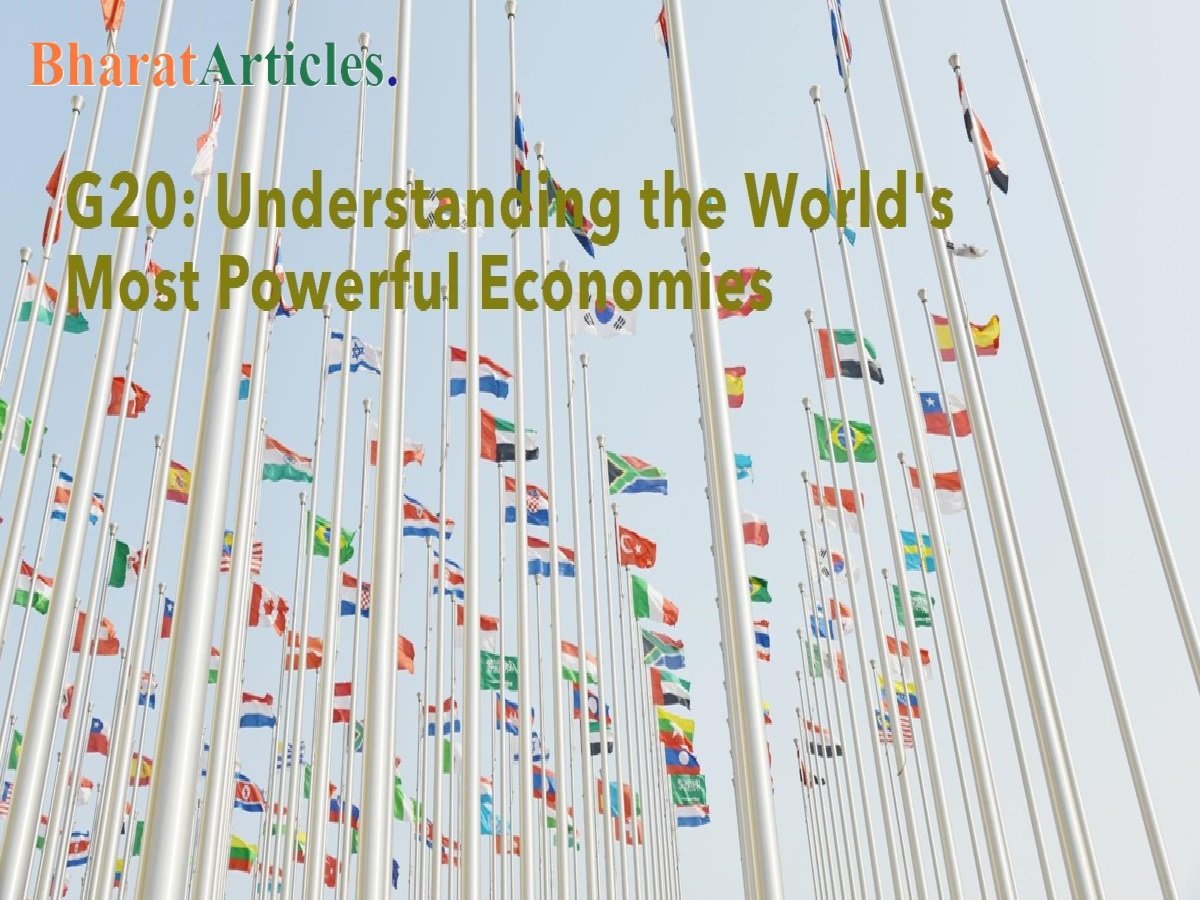Understanding the G20: Shaping Global Economic Cooperation and Policy Coordination
The G20, also known as the Group of Twenty, is an international forum consisting of 19 countries and the European Union. It brings together the world’s major economies to discuss and coordinate on global economic issues. Founded in 1999, the G20 serves as a platform for dialogue and cooperation among its members, representing around 80% of the world’s economic output and two-thirds of its population.
The Role and Objectives of the G20
The primary objective of the G20 is to promote global economic stability, sustainable growth, and financial resilience. The forum provides a platform for leaders and policymakers to discuss and address pressing economic challenges, such as financial crises, trade disputes, and climate change.
Through regular meetings and summits, the G20 aims to foster policy coordination, cooperation, and consensus-building among its members. It serves as a forum for exchanging ideas, sharing best practices, and coordinating policy responses to global economic issues. The G20 also seeks to enhance international financial regulation and strengthen the global financial architecture.
G20 Members and Participants
The G20 consists of 19 countries and the European Union, which is represented by the President of the European Council and the President of the European Commission. The member countries are:
- Argentina
- Australia
- Brazil
- Canada
- China
- France
- Germany
- India
- Indonesia
- Italy
- Japan
- Mexico
- Russia
- Saudi Arabia
- South Africa
- South Korea
- Turkey
- United Kingdom
- United States
In addition to the member countries, the G20 invites guest countries and organizations to participate in its meetings. These include other major economies, regional representatives, and international organizations such as the International Monetary Fund (IMF), World Bank, and United Nations.
G20 Summits and Meetings
The G20 holds an annual summit, hosted by the member country holding the G20 presidency for that year. The summit brings together heads of state, government officials, and central bank governors to discuss and make decisions on global economic issues.
In addition to the annual summit, the G20 also holds ministerial meetings throughout the year. These meetings focus on specific policy areas, such as finance, trade, agriculture, and energy. They provide an opportunity for ministers and experts to discuss and coordinate on relevant issues before they are brought to the attention of the leaders at the summit.
During the summits and meetings, the G20 members engage in discussions, negotiations, and decision-making processes to address global economic challenges. The outcomes of these gatherings are reflected in communiqués, declarations, and action plans, which guide the future direction of global economic policies.
Impact and Significance of the G20
The G20 plays a crucial role in shaping global economic governance and policy coordination. Its significance lies in its ability to bring together major economies and facilitate dialogue and cooperation on pressing economic issues.
By fostering policy coordination and cooperation, the G20 helps prevent and mitigate financial crises, promotes trade and investment, supports sustainable development, and addresses global challenges such as climate change and inequality. It provides a platform for finding common ground and building consensus among diverse economies with different priorities and interests.
The G20’s decisions and actions have a ripple effect on the global economy, as the policies and measures agreed upon by its members can have far-reaching implications. The forum’s ability to mobilize resources, coordinate actions, and promote policy coherence makes it a powerful force in shaping the global economic landscape.
India’s G20 Priorities
During India’s Presidency, a robust agenda was set forth, emphasizing several priority areas:
1. Green Development, Climate Finance & Lifestyle for Environment (LiFE): Recognizing the urgency of addressing climate change, India underscored the need for sustainable development practices and adequate financing mechanisms to mitigate environmental degradation and promote a greener future.
2. Accelerated, Inclusive & Resilient Growth: Inclusivity was a central tenet of India’s agenda, advocating for policies that promote equitable economic growth and resilience, particularly in the face of global crises such as the COVID-19 pandemic.
3. Accelerating progress on Sustainable Development Goals (SDGs): Commitment to the SDGs remained steadfast, with a focus on accelerating progress towards achieving these ambitious targets, thereby ensuring a more prosperous and equitable world for all.
4. Technological Transformation & Digital Public Infrastructure: Harnessing the power of technology was identified as crucial for driving economic growth and innovation. India emphasized the importance of digital infrastructure in fostering inclusive development and bridging the digital divide.
5. Multilateral Institutions for the 21st Century: Strengthening multilateral institutions was deemed essential for addressing complex global challenges effectively. India advocated for reforms to make these institutions more inclusive, transparent, and responsive to the needs of all member states.
6. Women-led Development: Recognizing the critical role of women in economic development, India championed initiatives aimed at empowering women entrepreneurs and advancing gender equality in all spheres of economic activity.
India’s Cultural Initiatives and Engagement Activities
India’s G20 Presidency was characterized by a series of cultural initiatives and engagement activities aimed at fostering greater public participation and awareness. From Jan Bhagidari activities to special University Connect events, the Presidency sought to involve diverse stakeholders in the G20 process, ensuring that voices from civil society, academia, and youth were heard and integrated into decision-making.
Conclusion
The G20 serves as a vital forum for global economic cooperation, bringing together major economies to address pressing challenges and promote sustainable and inclusive growth. Through its meetings, summits, and policy coordination efforts, the G20 plays a crucial role in shaping the global economic agenda and guiding the future direction of economic policies. As the world becomes increasingly interconnected, the role of the G20 in fostering dialogue, cooperation, and consensus-building among its members becomes ever more important.
